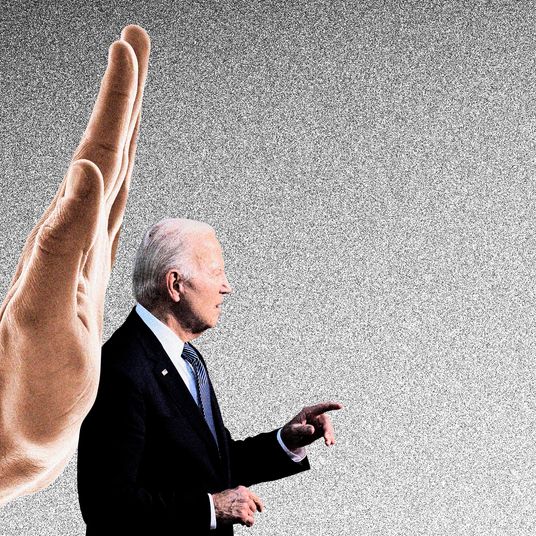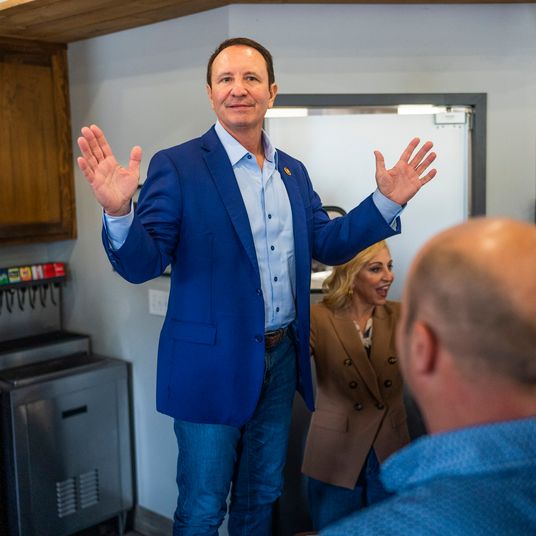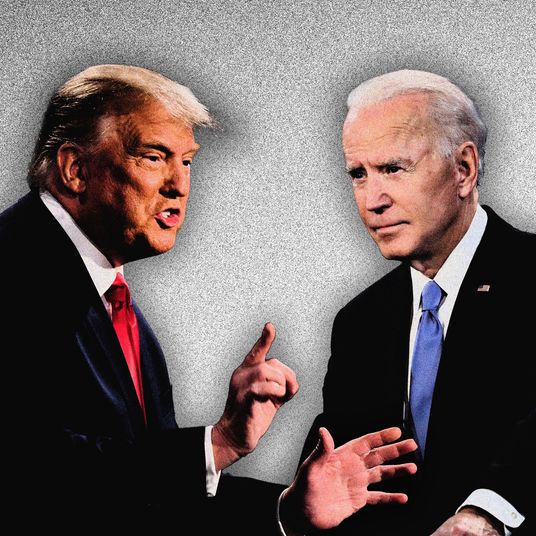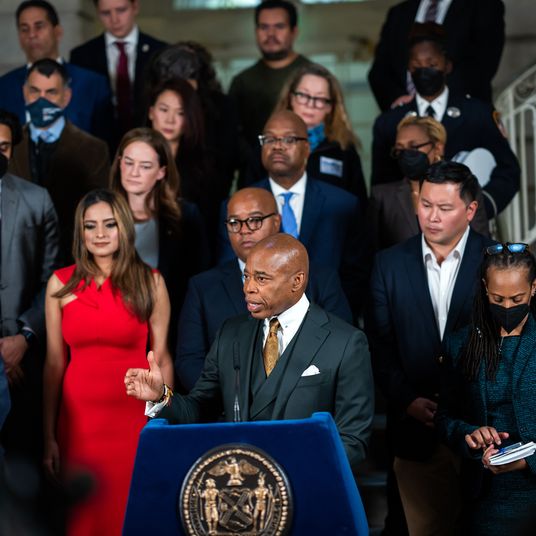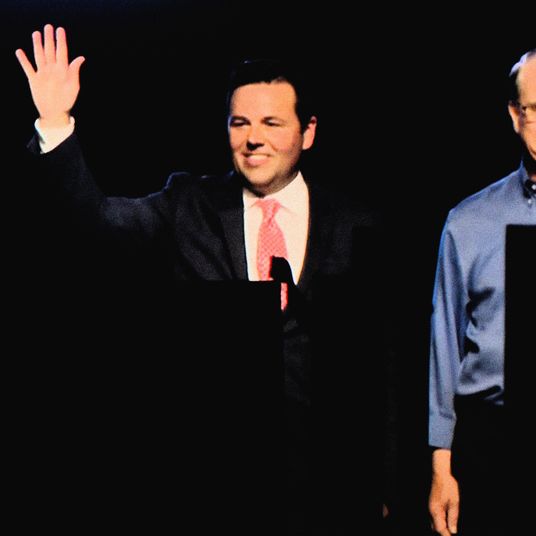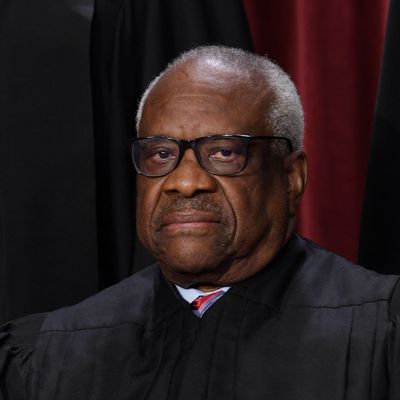
Donald Trump had a nice June 11 primary day in North Dakota with his endorsed candidates for governor (Kelly Armstrong) and Congress (Judy Fedorchak) both winning handily. But it may have annoyed him that voters in that state approved a constitutional amendment that seeks to keep octogenarians out of the congressional delegation. The measure bans congressional candidacies by anyone who will reach the age of 81 by December 31 of the year preceding the end of their proposed term. That means neither Trump (who will turn 78 this week) nor Joe Biden (who is 81) could run for Congress in North Dakota this year. It wouldn’t directly affect current officeholders, as the New York Times noted:
At the moment, the measure would actually have no bearing on North Dakota’s three current members of Congress, all Republicans, who range in age from 47 to 67.
Still, at least one of them, Senator Kevin Cramer, said he opposed the measure. “I can’t imagine why any patriotic conservative would vote to limit their choices,” Mr. Cramer, who is 63 and seeking re-election in November, said in an emailed statement.
But the notably conservative North Dakota electorate approved the measure by a 3-2 margin.
Now, you could just write this off as a symbolic gesture in a year when Biden’s age (and less so Trump’s) has gotten a lot of attention. And legal experts immediately observed that state efforts to impose new eligibility criteria on candidates for federal office were struck down in a landmark 1995 U.S. Supreme Court decision invalidating state-imposed congressional term limits.
But the primary funder of the North Dakota age measure was the U.S. Term Limits organization, the losing party in the 1995 U.S. Supreme Court case. It seems entirely possible that term-limits fans are hoping for a fresh look at the constitutional question, either to validate an age limit or even a reversal of the ban on state-imposed term limits (it was a 5-4 decision).
As it happens, the one Supreme Court justice who heard that 1995 case and is still on the Court is Clarence Thomas, who wrote a dissent. Knowing Thomas, he probably hasn’t found reason to reconsider his strong opinion back then:
Nothing in the Constitution deprives the people of each State of the power to prescribe eligibility requirements for the candidates who seek to represent them in Congress. The Constitution is simply silent on this question. And where the Constitution is silent, it raises no bar to action by the States or the people.
The idea of age limits on members of Congress is very popular beyond North Dakota; a Pew survey last October showed that 79 percent of Americans (including 82 percent of Republicans and 76 percent of Democrats) favor maximum ages for “elected officials in Washington, DC.” Around the same time, a University of Maryland survey showed that 83 percent of registered voters (including 86 percent of Republicans and 80 percent of Democrats) favor a constitutional amendment to impose term limits on Congress. If a challenge to the North Dakota measure causes the U.S. Supreme Court to overturn its 1995 decision, there could be a mad scramble in the states to restrict the tenure of those universally mistrusted politicians in Washington. And that could be a big deal: 19 current members of Congress are 80 or older. All of them could be affected by term limits.
So this development in North Dakota could bear watching. Yes, Biden and Trump are unpopular, but Congress is really unpopular: Per Gallup, that institution’s job approval ratio is 13 percent favorable to 81 percent unfavorable. Just about anything restricting the age or tenure of members of Congress is going to have fans across party lines. It may be up to the Supreme Court whether to green-light such measures, and we already know this particular Court isn’t strongly bound by its own precedents.
More on politics
- Do Liberals Have It All Wrong About How to Beat Trump?
- Trump vs. Biden Polls: A Close Race Gets Even Closer
- RFK Jr. Misses What’s Likely His Only Shot at Debate Stage







